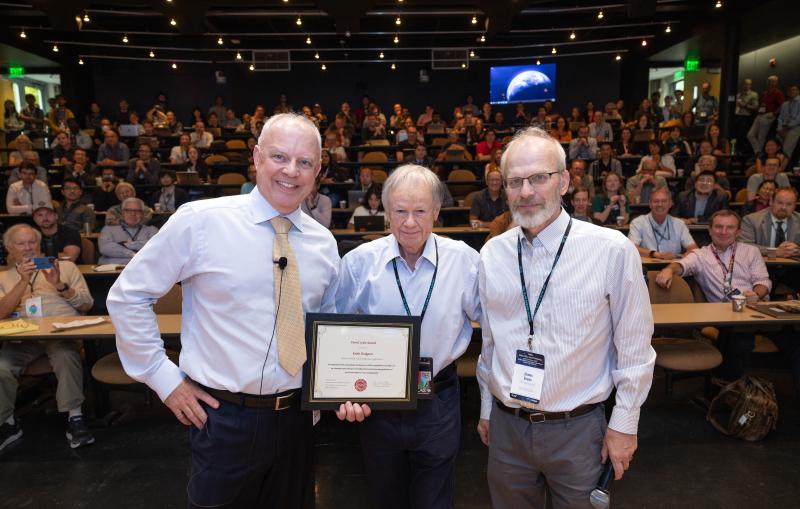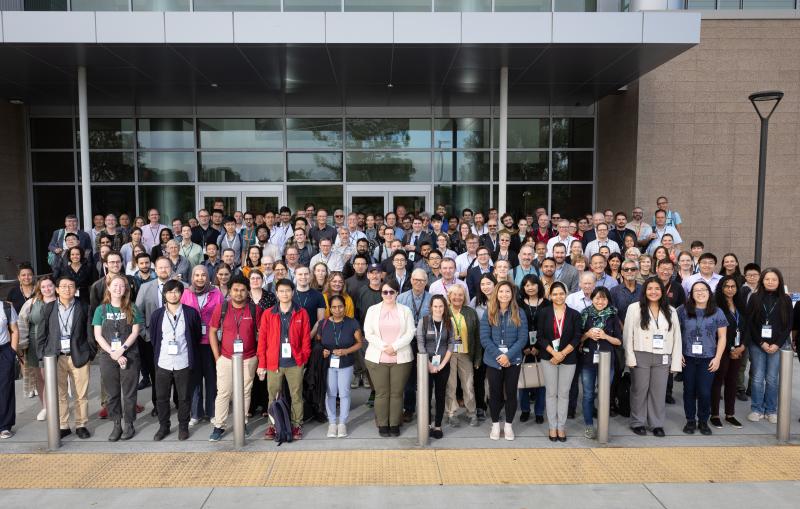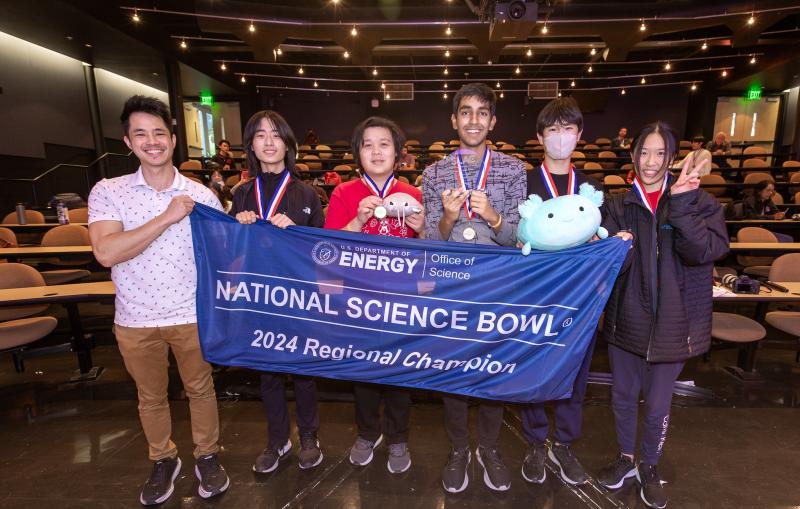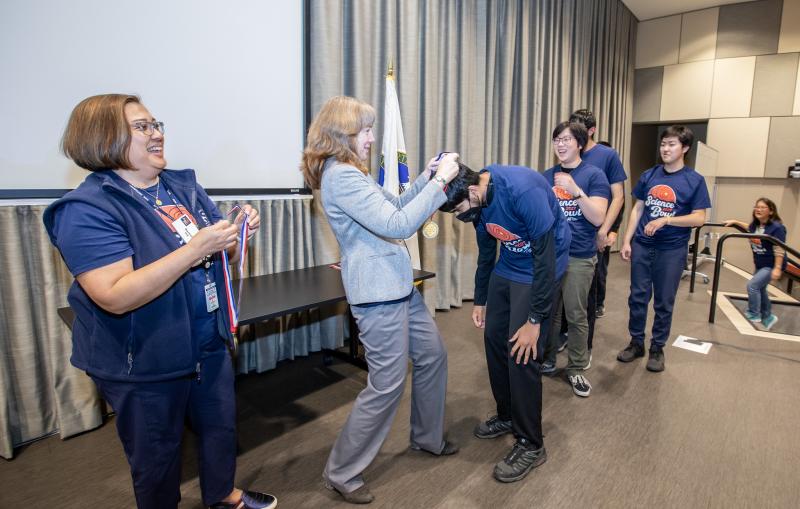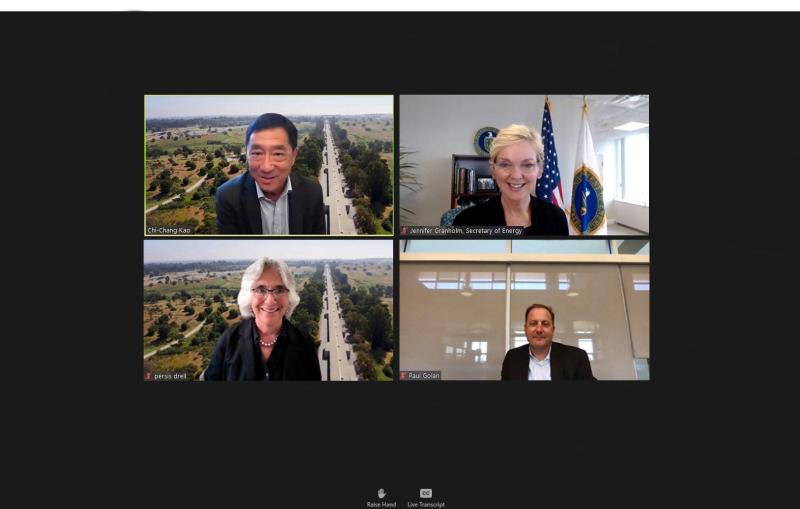Lynbrook High and Joaquin Miller Middle School win SLAC Regional Science Bowl competitions
The lab hosted two regional competitions this year. Winners of the Science Bowl regionals go on to nationals.
By David Krause
As the Winter Olympics streamed across the world in February, San Francisco Bay Area students gathered virtually to compete in a different type of competition: one focused on science and math.
Part of the National Science Bowl, the event kicked-off on Feb. 12 with teams from 30 high schools grinding through a day of difficult questions in physics, geometry, and other STEM fields. The Department of Energy’s SLAC National Accelerator Laboratory hosted the Regional Science Bowl and welcomed two new schools this year: Presentation High School and Summit Public School, Tahoma.
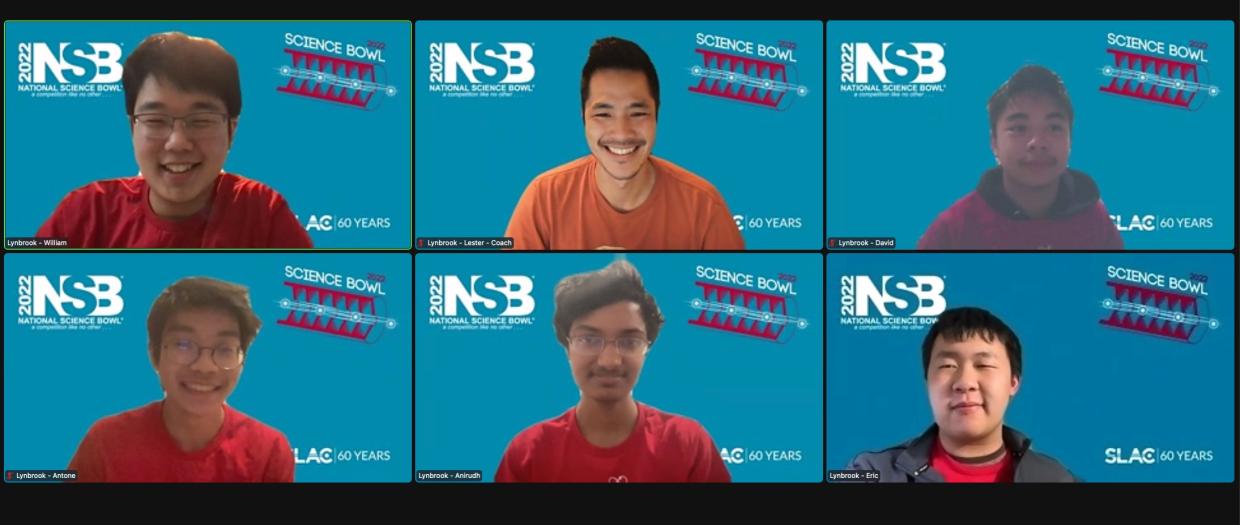
The winner was Lynbrook High School from San Jose. The key to the team’s consistent success has been a student culture of encouragement – an atmosphere that values learning and teaching, according to Lester Leung, a chemistry teacher at Lynbrook and the coach of the school’s Science Bowl team.
“The students love teaching about their science passions to younger students,” he said. “They bring others up to that same level of interest and desire to compete in the future.”
In this year’s final round Lynbrook faced its friendly rival, Harker High School. Harker won the SLAC regional Science Bowl in 2020, while Lynbrook won in 2021. This year Lynbrook beat Harker in a final score of 174 – 160, which is about as close as you can get. The 14-point final difference is about the value of two questions.
Joaquin Miller takes middle school trophy
Two weeks later, on Feb. 26, the Regional Science Bowl crowned another champion – San Jose’s Joaquin Miller Middle School Team 1 – in the first middle school competition sponsored by SLAC. Two teams from Joaquin Miller competed against 13 other teams. Their Team 1 inched past Harker Middle School in another close final.
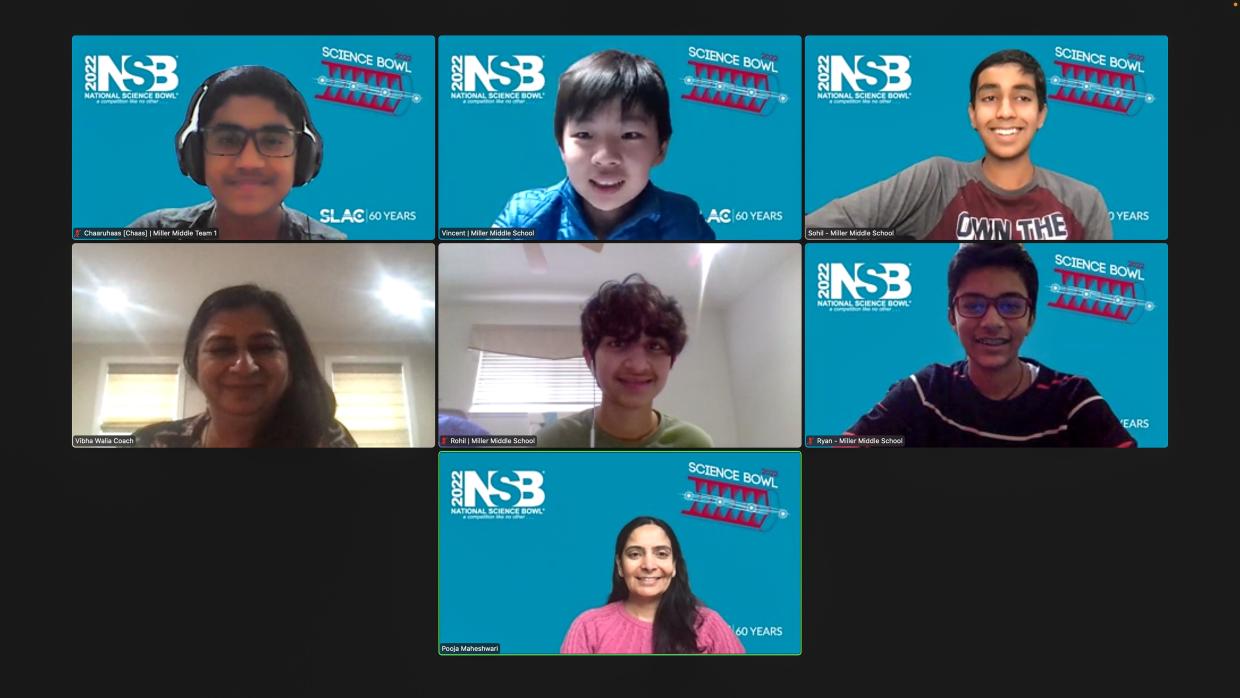
The competition between Harker and Joaquin Middle went back-and-forth throughout the day, said Vibha Walia, Joaquin Miller’s coach and an eighth-grade science teacher at the school.
Harker won the semi-final round by eight points, but Joaquin Miller ended strong and won in the finals 142 – 106.
“It’s all about fun and learning,” Walia said. “I try to not make it too serious because the students are still in middle school. I want them to enjoy science more than anything else.”
Many of Joaquin Miller’s students funnel into Lynbrook High School, and some come back to help coach the Joaquin Miller’s younger students. It’s a cycle that builds a sense of community and support, Walia said.
Lynbrook and Joaquin Miller will move on to the virtual national semi-finals in May, and the top eight teams in high school and middle school competitions go on to the National finals in Washington, D.C., this summer.
Training during a pandemic
This was the second year that the high school and middle school competitions were virtual.
New coronavirus variants caused the Lynbrook High School team to cancel scrimmages and constrained their face-to-face practices, Leung said. In a normal year, the team would have met every month inside a classroom, but those practices were fewer and farther between.
Even so, students remained determined. Leung said he is proud of the team for practicing on their own and preparing to step into Science Bowl from their home computers. The online format required additional preparation.
“When Science Bowl is virtual, speed isn’t as much a factor because you aren’t using buzzers. In a virtual format, you get 100 percent of the questions, so it’s all about getting as many questions as you can and answering them correctly,” Leung said.
From Science Bowler to SLAC engineer
Bhavna Nayak, a SLAC staff engineer who was one of over 70 volunteers at this year’s event, competed during her senior year at San Jose’s Santa Teresa High School. It put her in a good mindset to pursue science in college.
“Having fun in something like the Science Bowl taught me that I would enjoy a science career,” Nayak said. “I remember being in awe of the teams we were facing that day. We just tried to have fun with it and do our best.”
Coming back to the competition as a volunteer left her in awe again.
“There were moments in the competition where I would think ‘I have no idea how you are supposed to know this as a high-schooler.’ But every time, the students would surprise me with how much they know,” Nayak said.
As for advice for future competitors, Nayak said to study, be a good sport, and have fun:
“Competition can be very stressful, but it can be extremely motivating.”
The DOE’s Office of Science manages the National Science Bowl® and sponsors the finals competition. The Office of Science is the single largest supporter of basic research in the physical sciences in the United States and is working to address some of the most pressing challenges of our time.
For questions or comments, contact the SLAC Office of Communications at communications@slac.stanford.edu.
SLAC is a vibrant multiprogram laboratory that explores how the universe works at the biggest, smallest and fastest scales and invents powerful tools used by scientists around the globe. With research spanning particle physics, astrophysics and cosmology, materials, chemistry, bio- and energy sciences and scientific computing, we help solve real-world problems and advance the interests of the nation.
SLAC is operated by Stanford University for the U.S. Department of Energy’s Office of Science.


